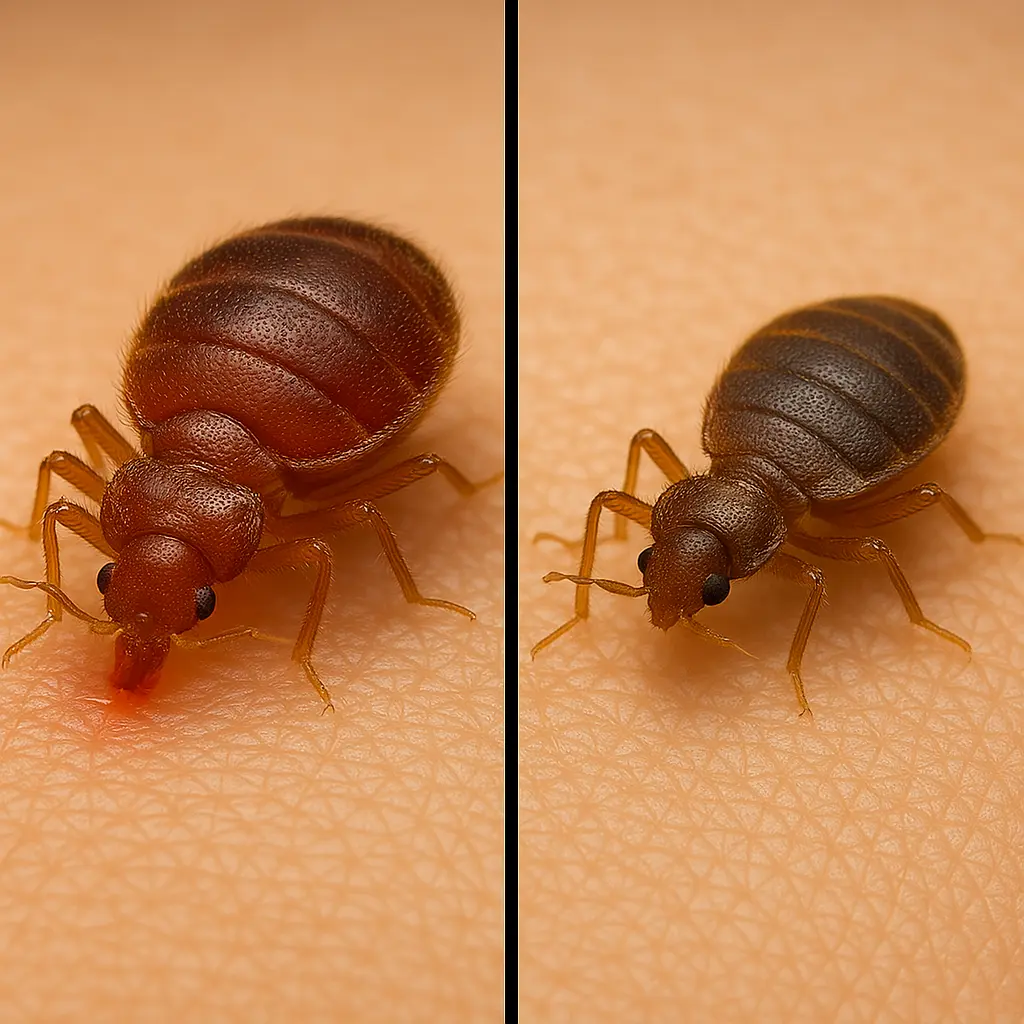Mating and Starvation: How They Influence Female Bed Bug Behavior

Recent research has revealed fascinating insights into how mating and starvation influence the behaviors of female bed bugs (Cimex lectularius), affecting their feeding patterns and host-seeking habits. Understanding these behaviors can help us tackle bed bug infestations more effectively.
How Mating Changes Feeding Behavior
The study found that mated female bed bugs are significantly more likely to feed than unmated females. Specifically:
- Mated females: 90–100% actively fed, consuming larger blood meals.
- Unmated females: Only 48–60% chose to feed, with smaller meal sizes.
These differences indicate mating triggers physiological changes that increase appetite and feeding efficiency.
Host-Seeking Responses: Smelling Out a Meal
Female bed bugs heavily rely on scent to find human hosts. The researchers discovered clear differences based on mating status:
- Mated Females:
- About 69% showed strong attraction to human skin odor, indicating active host-seeking behavior.
- Unmated Females:
- Initially, only about 23% showed attraction.
- However, their host-seeking behavior increased significantly (up to 60%) with prolonged starvation.
Interestingly, prolonged starvation had the opposite effect on mated females, decreasing their attraction to human scent to around 20%, highlighting a complex interaction between mating and hunger.
The Hidden Costs of Mating
Researchers also found mating has hidden survival costs for female bed bugs:
- Frequent mating attempts did not significantly change egg-laying after a single blood meal.
- However, it notably reduced lifespan and overall survivorship, showing the delicate balance females must maintain between reproduction and longevity.
Why This Matters
Understanding these behavioral complexities can significantly improve pest control strategies. Recognizing how mating and starvation influence bed bug behavior allows better prediction of infestations and more effective interventions.
Original Research: Mating and starvation modulate feeding and host-seeking responses in female bed bugs, Cimex lectularius
Did you survive bed bugs?
We’re building a collection of stories about surviving bed bugs. Got a story? We’d love to include it.
Share your story